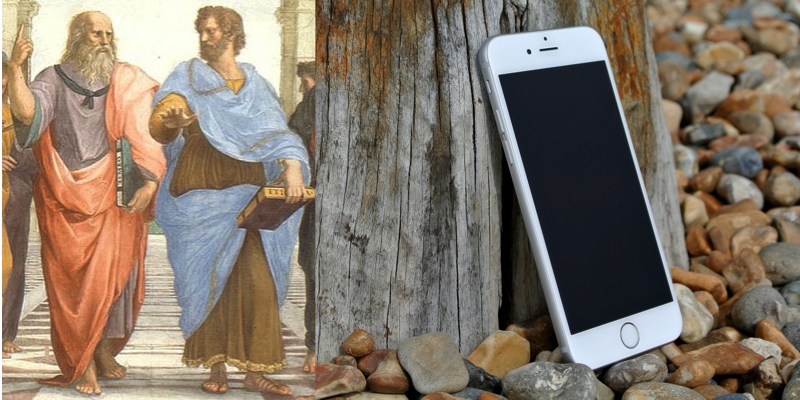Recently, noted atheist provocateur Bill Maher was on Steven Colbert’s Late Show. While on the show, Colbert made a half-joking (and half-hearted) invitation for Maher to return to the Catholic Church. Maher’s response was predictable:
There is one part of the conversation in particular that I want to focus on. Maher disparages trusting in “myths from the Bronze Age,” and Colbert notes that he follows the wisdom of his ancestors. Maher responds,
These were men who did not know what a germ or an atom was or where the Sun went at night – that’s where you’re getting your wisdom.
This is a typical line from Maher, who likes to belittle everyone who lived before the 21st century as ignorant hicks who don’t know a computer from a telescope. Obviously we are smarter now – we have iPhones!
But his argument is fundamentally flawed, for he does something most ardent materialists do: he elevates knowledge of the physical sciences to the highest, and only, form of knowledge needed for living. In other words, he confuses knowledge with wisdom. Does knowing what a germ is make me a better husband? Does knowing what an atom is teach me how to love? Does knowing where the Sun went at night reveal the mysteries of the human heart – why we are here, what is the purpose of life? Of course not.
With a clever line delivered to an unthinking crowd (Colbert’s primary audience), Maher appears to make a point. But all one has to do is dig a littler deeper to see that our ancestors, while perhaps not as knowledgable about the physical sciences, were often very wise about the deeper realities of humanity. Consider thinkers like Socrates, Plato or Aristotle, or great theologians like St. Augustine or St. Thomas Aquinas. Just a cursory reading of any of these giants (which I’ll bet Maher and others have not done) show that they understood humanity far better than most of us do. Which should be obvious to all but the most brainwashed materialist: the human race, while it might over time become more knowledgable about the physical world, and become better able to manipulate it, has not changed fundamentally. People still love and hate, are generous and greedy, and are selfless and selfish. This has been true since men and women first walked this earth.
Living in an age where all the works of Plato can be stored on your phone in your pocket does not make you more wise than Plato about the important things of life. Unfortunately for Maher and others like him, he sees no difference between knowledge and wisdom.

